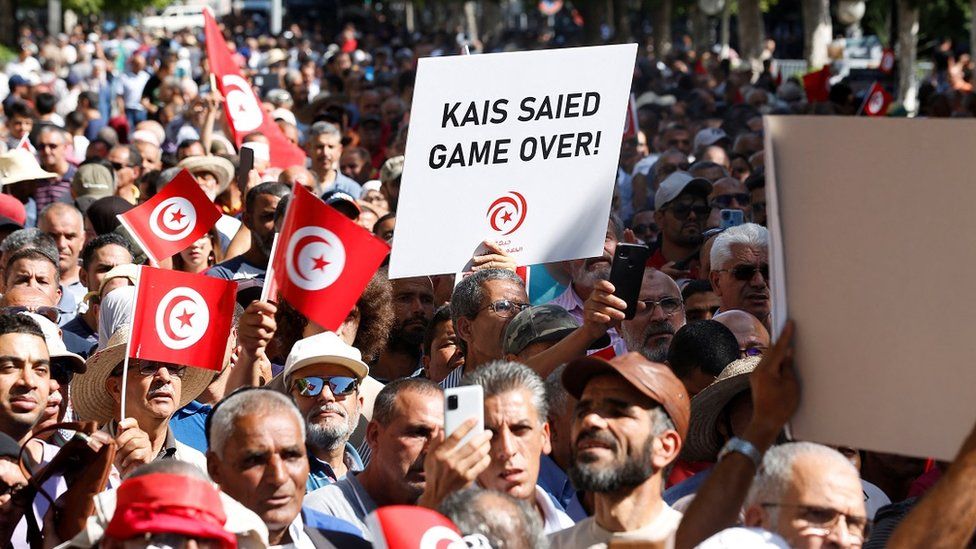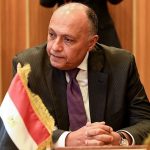Turkey, Hungary, Poland, then again Turkey, Hungary and Poland. How much longer will these countries agree to serve as an example for Israel without charging commission or a user fee. The day will come, and it’s not far off, when they tell us – enough with the disrespect for two European countries and the one that wants to be European. Find yourselves another role model.
Israel is no longer the only democracy in the Middle East because it is becoming more and more like its Arabic-speaking sisters. Let Israel be so kind as to draw inspiration from them.
At least one of them, Tunisia, is ready to offer itself as a possible model. This small country, which launched the Arab Spring in December 2010, managed in a short time to rid itself of president Zine El Abadine Ben Ali’s dictatorship and his luxury-hungry wife, Leila Trebelsi, and establish a worthy democratic regime.

Tunisia was at the forefront of the minds of millions of Arabs who came out to protest in the streets of Egypt, Yemen, Syria, Libya, Morocco and Jordan, and aspired to true regime change and to establish democracy in their countries. They wanted, like Tunisia, to enjoy separation of powers, whose justice system would be independent. They protested for a parliament that would be a place of dignity for a vocal and aggressive opposition that carries weight. Furthermore, they wanted freedom of expression that isn’t just a constitution’s window dressing, but sacred practice. Tunisia managed to check each of those boxes after its revolution.
Tunisian democracy continued to exist despite the harsh terror attacks carried out by Islamic State activists, economic crises, and the COVID pandemic. When presidential elections took place in 2019, no one dreamed that it would be Tunisians last show of democracy. A law professor, Kais Saied, was a tough, conservative LGBTQ-hating technocrat, nicknamed “Robocop” because of his monotone speech cadence, who within two years, in July 2021, achieved a revolution.
With the stroke of a pen he dispersed parliament, fired the prime minister and the cabinet, froze the constitution and announced that the country would be governed by presidential orders. Mass demonstrations broke out immediately, public and political protests engulfed the cities, but the results remained the same. In February 2022, Saied dissolved the Supreme Judicial Council, the body among whose members are prosecutors, academics and intellectuals.
Until then, the council enjoyed independence, and was responsible, among other things for the appointment of judges and professional oversight of the courts. Saied accused the council of corruption, bringing harm to citizens because of its excess pile-up of cases over, and of harming the state. “The state cannot be purified without purifying the courts and the justice system,” Saied stated, and in one fell swoop dismissed 57 judges who are expected to be put on trial for the “offenses” they committed while in office.

At the same time, he appointed a “temporary council of judges,” whose members Saied selected personally, and of course, are tasked with destroying the judicial branch’s independence. Saied relies heavily on the army and the police, and particularly the national guard, to whom he explained their mission: “Your sacred duty is to settle accounts with everyone who has committed crimes against the state. No criminal will evade responsibility. Today we begin a battle for national freedom to protect the state. The national guard and the justice system must fulfill their mission to stand up against those who have plotted against the state in the past and who are still doing so.
Recently he also warned against the refugees coming to Tunisia from African countries, whose goal, he says, is to change the demographic structure of his country, and from there, infiltrate Europe and make it Black. Interesting where he might have copied this rhetoric from.
Additionally, the idea of a plot against the state, that is, against him, is not new. Saied and his inner circle have spread the word over the past two years that five attempts have been made on his life, to poison him, shoot him, or kill him by means of a letter bomb. In none of these cases was proof of these “plots” presented. His populism against the judges and prosecutors depict them as people who “hasten to past judgement and convict only the poor, those who stole vegetables, and not those who stole billions, while those who plot against the state go free. These are the traitors that connive [to do] evil.”
He promises that against these people “the missiles are on their launchers and one signal will suffice for them to strike these corrupt people.” Those missiles have already been launched against journalists, political party leaders, university lecturers, and anyone who tweets, posts or expresses an opinion that could be construed as critical of the president.
Kais Saied is a staunch opponent of normalization with Israel, but he is unlikely to sue Israel for copyright infringement of his methods. After all, he can now say that Tunisia and Israel are the only two democracies in the Middle East.
By: Zvi Bar’el
Source: Haaretz



